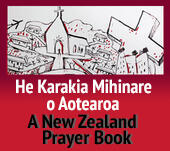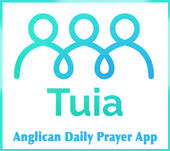The other day I was at church talking to people after the service, but I found it hard to focus on the conversation.
My baby was sick so I was a bit anxious to be away from him. I was also eagerly awaiting some replies to work emails, and as I glanced at my phone between conversations I saw a few email notifications.
During my next conversation I found myself thinking about those new emails, one about our family Christmas plans, one from my husband asking me to pick something up on my way home, then I thought about my to do list and realised I was on morning tea for my son’s play group and will have to stay up late baking one night this week.
Soon I realised I was nodding along to this person I was talking to but not really paying attention at all, another thing I could add to the list to feel guilty about.
So I reapplied myself to the conversation and as things wound down I walked into my office and felt completely overwhelmed. How can one woman function in so many roles with so many demands?
Have you ever felt this way, or observed a woman feeling this way?
Sure, for me that was a particularly bad day, but we all know that the demands on women are great. What I tend to forget on days like that is my belief that God equips us for our roles. Speaking in common generalisations, women tend to be more in touch with their feelings, more intuitive towards people’s needs, more able to cope with suffering, and have the ability to keep more balls in the air at the same time and still remain fabulous. Whether these generalisations are appropriate or not, they have historically dictated a woman’s role.
The scripture Emily just read speaks practically of a duty to let God, and his teaching, be the primary focus of life at a personal, familial and societal level. The rituals of remembrance it advises illustrate that God’s promises and instruction are to encompass all of life, to be woven into the fabric of the ordinary, everyday bustle. Every moment is a teachable moment for the Kingdom.
To me this scripture seems encapsulated so perfectly in the ministry and lives of women. This comes into even sharper focus in times past as we will see, when gender roles were more defined and men were less involved in the private sphere. As we come together today to celebrate 200 years of women in ministry in Aotearoa, 200 years of women serving Christ in all aspects of their lives, I would like you to hold this scripture in your mind as we imagine it being lived out by the missionary wives 200 years ago at the beginning of our story so that we may draw understanding and inspiration from these incredible women.
In the 1800’s the primary task of the early missionary wives was to be helpmeets to their husbands.[1] Despite their education and abilities, CMS had the specific strategy of using women for demonstrating the role of a Christian wife and mother, for improving the morals and manners of the men they encountered, and for the education of children to become good Christian adults.[2] If the women had any time or energy left over then they could pursue their own mission ministries. Whatever us women today think about that situation, this is what these pioneer women did. They endured separation from their families back home, looked after the men in their lives, bore, and were the primary nurturers and educators for their children, tended to the sick, grew crops, taught in schools, and maintained these tasks and took over management of the mission stations when their husbands were absent travelling around the country. They didn’t need emails and text messages to find life demanding.
It appears from historical sources that all of these tasks were executed and roles fulfilled with the utmost faith and trust in God. On their best days, each aspect of their life, each encounter was seen as an opportunity to become a strand which they used in weaving a beautiful garment of faith advancing the gospel for God’s glory. On their worst days the failures they felt still reflected an earnest heart seeking to please God.
Charlotte Brown was a prime example of this. She kept a Christian home and supported her husband, which was a daunting task in itself at that time. However, she also taught both Maori and Pakeha children in her schools, impressing upon them Jesus’ teachings, whilst teaching literacy and English so that all could read the scriptures available at the time. Her constant activity was draining on her health, but she persevered for her Lord. She wrote that although she suffered she did so in the total assurance that God would “support [her] under every trial.”[3] Even at the loss of her son at age 14 she maintained her strong faith and trust in God. Five years before she died her husband wrote her this poem which is an awesome testimony to her faith:[4]
Thou art not young, nor beautiful,
no longer jet thy hair,
and where a dimple graced thy cheek
are signs which tell of care.
The triumphs time has won,
they have not yet reached thy mind,
thy present prayers, thy ready aid,
thy love for all mankind.
Nor time nor age has power to chill
the wellspring of thy heart,
thy presence still has power to gild
our blessed home and hearth
Many many birthdays more be thine
Ere thou art called above
Days rich in holiness and faith
Blessed by our saviours love
Incredible.
Charlotte Brown left an inspirational legacy in the way that she wove her faith into the fabric of the early Christian mission. Like an adept craftswoman, she faithfully manipulated the strands involved in keeping an ordered, proper and faithful Christian household, the strands involved in supporting her husband in life and ministry, as well as taking up other strands, undertaking her own extra missionary endeavours. Weaving into the future, we can see her legacy in the people she taught. Most notably the incredible Tarore who took hold of the strands which Charlotte had been weaving and joined in new ones as she boldly continued the advancement of the gospel at the cost of her own life.
Perhaps it is because we women have, and have always had, so many things on our to do lists, and perhaps it is because our minds do think ahead anticipating everyone’s needs, because we fill so many roles, that women are best placed to fulfil the scripture we heard today, aspiring to use each task, role or interaction to advance the gospel. As we take up our strands, nurturing our children or others, answering emails, serving people, compiling lists, and chatting to strangers in the grocery aisle at the supermarket, we women have the unique opportunity to follow in the way in which our tupuna did and weave our faith into the future, offering many beautiful strands for those whom we nurture in the faith to take up, so that we too can leave awe inspiring footprints on the whaariki as we go about the bustle of everyday life.
[1] Cathy Ross, Women with a Mission: Rediscovering Missionary Wives in Early New Zealand, (Penguin Books: Auckland, 2006), 14.
[2] Ibid., 16.
[3] Letter to M Beams, quoted to Francis Porter and Charlotte Macdonald, with Tui Macdonald, eds, ‘My Hand Will Write What My Heart Dictates’; The Unsettled Lives of Women in Nineteenth Century New Zealand As Revealed to Sisters, Family and Friends (Auckland: Auckland University Press/Bridget Williams Books, 1996), 60, cited in Ibid, 31.
[4] Alfred Nesbit Brown, ‘Papers’, (WTU:micro-MS-0756, 1828-1887), Poem from A Brown to C Brown, N P, May 1850, cited in Ibid, 27.

















Comments
Log in or create a user account to comment.